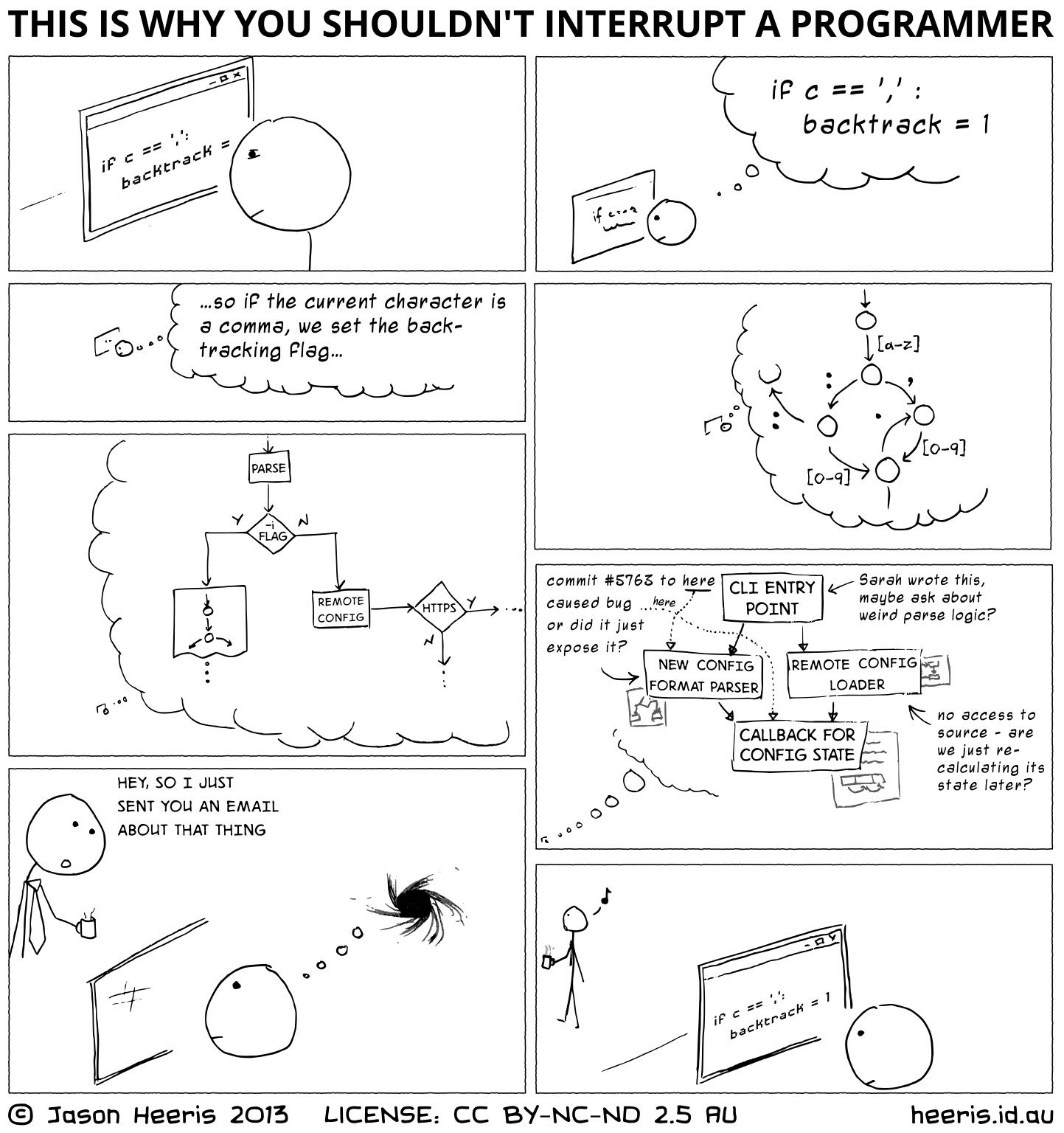How to take notes as a programmer
When I was small, I wrote terrible notes: they were notebooks with dirty text and poor structure. Almost useless.
Then, when I discovered the MOOC video courses, I continued to use the same anti-patterns as in school days, but not so ugly: with the help of VimWiki and later with Jupyter .
Records were still poorly structured. Look at this: I don’t even have enough motivation to simply open and look at what’s inside:
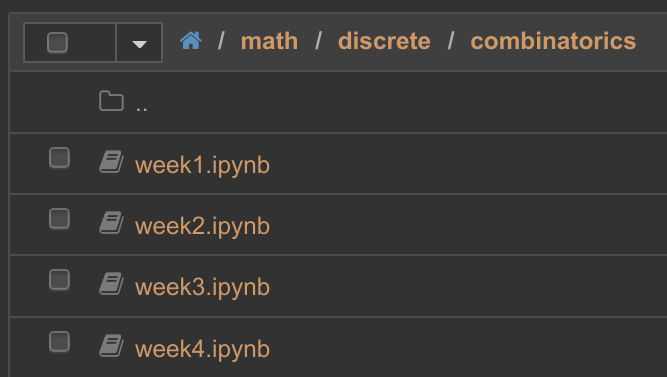
At some point, I understood what method of record keeping works best for me, and I want to share it.
The basic idea is to project our memory into a recording (and not the lecturer's memory) using the principles of program development.
The necessary conditions
I guess you already know about basic advice , such as expressing thoughts through your words (from your vocabulary, with simpler terminology) or focusing on questions, answers, conclusions and evidence.
I also assume that you are familiar with the technique of "chunking" from the course "Learning to learn" or from the book "Think like a mathematician . "
Make it readable.
We, software developers, take code quality very seriously. We do not like the code with the smell .
We communicate using code and invest extra time and energy in writing elegant code so that other developers can effectively read it. Including ourselves: in the future, we literally become other people.
The same approach seemed convenient to me for personal notes: you can optimize the search and reading of notes , applying a little more effort to writing.
Raw draft
Write the title and sources (books, articles, scientific works, videos, whatever you use) in a specific block of information. Start analyzing the first source. While analyzing - add some key details.
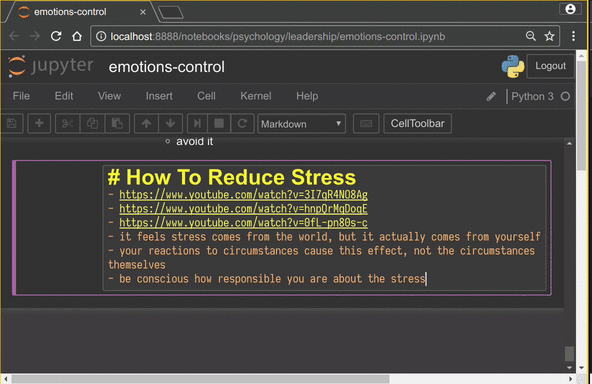
Refactoring
Now select keywords, break long sentences, use a more complex hierarchy of bulleted lists, add subheadings. Use Occam's Razor: Reduce the record several times without losing the original meaning.
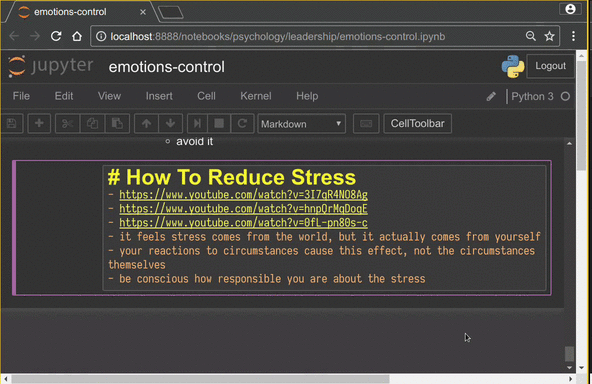
Continue to explore the rest of the sources and update the relevant records, add new information and specify the old.
When a record becomes large, divide it into files or structure it altogether with folders.
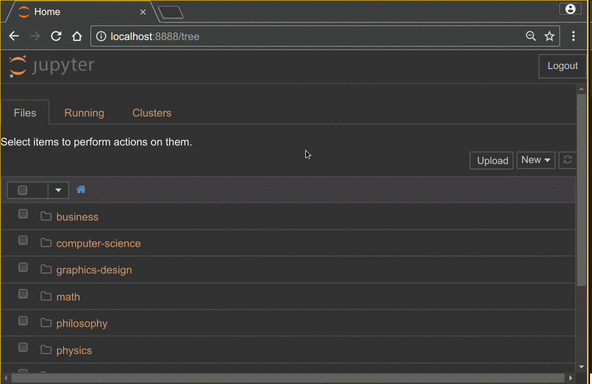
How to choose a structure? Choose one that will be convenient for you : imagine that you are looking for something in your notes. How exactly will you search? What is the shortest way to write fit?
Add tips for your future
Tired of learning and you want to start doing something already? Being pragmatic is good. Add suggestions you might want to explore in the future with the TODO comment.
Found a cool resource on a topic that has already been postponed? Find the appropriate entry, add the source and continue doing what you did.

TODO comments are considered antipattern by some developers. However, I still find them useful for personal projects and notes.
You do not need to continue your research at the next review of the note. A TODO comment is only a sign that you still do not know something well enough and you may want to improve your knowledge in a particular area if you meet it in practice.
Revision and improvement
Suppose that it took some time and you decided to use your records. You solve a specific problem and you need to quickly find something. Being able to find information quickly is important: it lowers the chance of losing focus on the task you are trying to solve.
Try searching in files:

Did not find anything? Possible reasons:
- typo when entering a search query - check it first
- invalid keyword - the same idea has been described synonymously in the past
- typo in the recording itself
It's time to improve. Find the entry manually and fix the problem with
- typos corrections
- add keyword
The next time you get the same record quickly.
In particularly strange cases, the recording will not be able to find again. For example, recently I was looking for something related to mathematical statistics:

Not found Wrote wrong?

Nope I googled something, but what the ... nonsense I found?
Since I am not a native speaker of English, it took me a little more time to realize that it was a typo after typing.
Misprints of rarely used words are normal, even if you are a native speaker. A possible solution is to add a misspelled keyword so that you can quickly find such a record later.
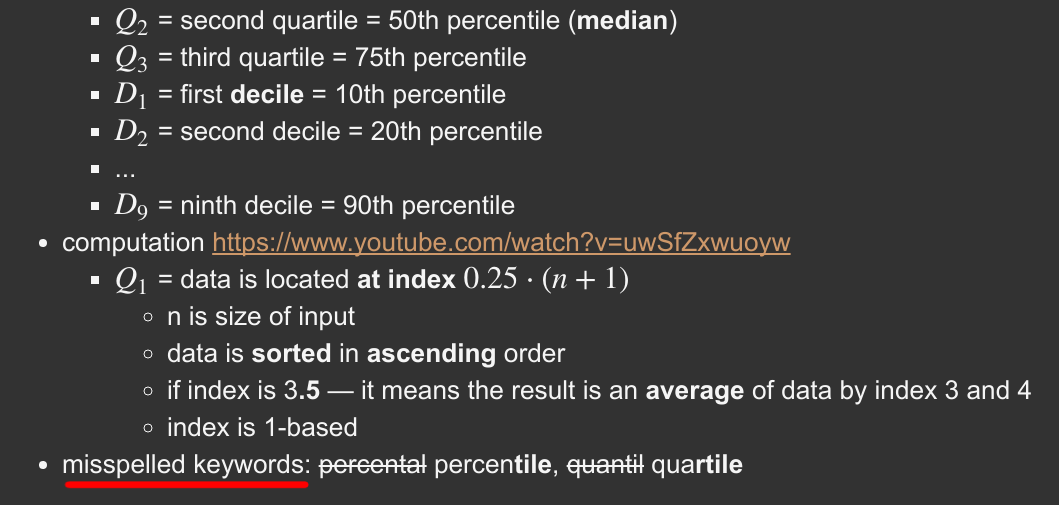
Another option is to use some clever search engine that supports fuzzy search.
UPDATE : It turns out in this particular case it was, after all, a bad advice. Instead of hurrying to write down a key word with a typo, it was first necessary to properly understand all these confusing terms for me and add “quantile” as a valid keyword.
Update your notes structure to match your memory.
Imagine that you could not find a note quickly, even when you tried to search for it manually. Possible reasons:
- the record is out of place
- the right place is difficult to determine
- where would you put records about the notation “big O”: in the mathematical analysis or algorithms?
How to fix it?
- move the block or file to the right place
- add a link from one note to another


Reflect again
Suppose you did find what you were looking for, but it is impossible to understand what was written on the fly - then just simplify it again.
Another common problem is to find a few notes, which should actually be one. Simply merge such fragments into one note and put in the appropriate place.
Find a balance
How not to overdo it all? If you find yourself spending time searching for notes that are out of place - this is a sign that the structure is still bad. Just fix every time you encounter this problem.
If you feel that it is difficult or time consuming - use something like the “rule of three”: if you searched for this record two times in the wrong place, leave it as it is. For the third time, refill.
And what's the point?
You probably now say that I did not convince you that investing additional time
writing quality notes is so important: they say it’s too boring or not applicable to the area of your work / study. Maybe yes, maybe not.
Recall the time when you were engaged in creative work, being in a state of flow . Sometimes you need to get some information and continue working without losing focus. You can take this information from Google, but sometimes it is too specific: for example, your own conclusions about a particular topic or even project-specific things.
Since it cannot be found on the net, you are using your notes. And then the crucial point: if you can quickly find these notes - then you will not lose focus at work. And if not - interrupt and still lose time on the search. Technically, this is the same as being interrupted by someone.
And then you need to return to your creative state of consciousness and continue working. Just imagine how much energy it takes from you.
Does it still seem that writing notes in such a way takes too much time? But you do have time to practice, right? Think again. Interrupts often steal from us a lot of time from practice.
In any case, this is just a strategy: in some cases it may not be applicable, so use it wisely.
Check list
- Write a raw draft with sources and poor structure.
- Periodically refactor your notes:
- Highlight keywords
- Break long sentences
- Improve the hierarchy of bulleted lists
- Use subheadings
- Simplify the text, reduce it
- Too long documents? - Split them into files
- Too many files? - Improve directory structure
- Add TODO comments
- Enjoy your creative work without losing focus! “Grab” notes when you need them:
- Can't find a note fast?
- Fix typos
- Add keywords (sometimes incorrectly written keywords)
- The note is not in its place? - Move the block / file to the correct place.
- Is the place ambiguous? - Add links from other places
- Can not understand what they wrote? - Reflect again
- Found duplicates / fragments of the same note in different places? - combine them
- Can't find a note fast?
Not so difficult, right?
This publication is a translation of its own article .
UPDATE: instead of git grep + copy-paste + search by page, now I use ngp + script (+ change in ngprc ) which opens Jupyter files in the browser and even goes to the corresponding anchor on the page. Unfortunately, this project does not support Unicode , but there is already a temporary solution.
')
Source: https://habr.com/ru/post/346876/
All Articles
